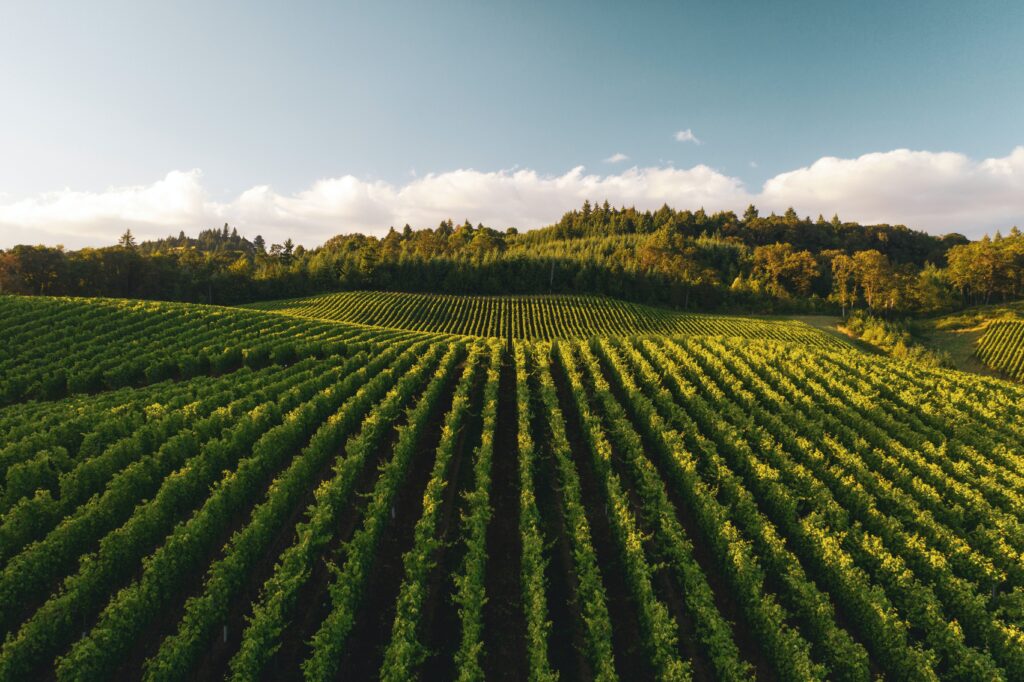“The sower sows the word.”
My definition of humility begins with ‘I am…’. I am virtuous. I formed my idol for self-glorification and fashioned it from my opinions of what you should be. I am not even aware that I do not understand.
“The sower sows the word.”
My definition of discipleship ends with ‘I am impassioned.’. My commitment wanes between the moments that move me. I filled my void with rocks instead of soil. If I don’t feel you, you must not love me.
“The sower sows the word.”
What I defined as ‘most valuable’ a time ago, I now value much less. Worry over the approval of men restrict me. I love the noble cause more than I love you. The budding fruits I was to feed myself, others, and you are stunted.

In listening to the Parable of the Sower, Jesus sowed the Word [himself] into a crowd composed of four different groups of people. Many of us recall the moment where we ‘heard and understood’ and became as ones having ‘good ground’. We responded to the Word that was sown. But the Word of God is not sown only once. If we are followers of Christ, we live a lifestyle of the Word being sown into our hearts, as the Lord’s Prayer says ‘give us this day our daily bread’. The Word is sown every time we read scripture or hear ‘the still small voice’. ‘Good ground’ is not a moment, it is a choice we make every day.
Seed is planted in its season, continually. The yields of previous seasons have little bearing on yields of the current season. Each planting season requires that we have thoroughly and properly cultivated our garden. Philippians 2:12 says ‘continue to work out [cultivate] your own salvation with fear and trembling’. Salvation is by grace, but we must cooperate with grace ‘with fear and trembling’- the reverencing fear of God. The Word is sown and the Holy Spirit brings forth fruit, but only after we have properly judged our own hearts to ensure that our ‘soil’ is hospitable to the Word. We exploit God’s grace when we don’t judge ourselves. If we don’t continue to judge ourselves – a lifestyle of repentance- we produce no fruit and what fruit that has begun to bud will stop growing and rot away.

Each planting season requires that we have thoroughly and properly cultivated our garden.
Romans 10:10 says ‘For with the heart one believes unto righteousness, and with the mouth confession is made unto salvation.’ When the Word sown in our hearts finds soft, deep, and fertile soil, we grow in understanding and trust of the Word which leads us towards righteousness. The fruit that is then produced from the seed of the Word is an ‘abundance’ of the Word itself, as was said in the parable ‘…who indeed bears fruit and produces: some a hundredfold, some sixty, some thirty’. Luke 6:45 says ‘Out of the abundance of the heart the mouth speaks’ and what we speak, which is the fruit of the Word that was sown into our hearts-our confession- is unto our salvation.

Fruit is meant to be eaten. When we go through trying times, truths that are deeply rooted in our hearts give sustenance to our hearts. Truth [the Word] encourages us, convicts us, gives us wisdom, and draws us closer to God. Feeding on these truths, the Word is replanted in our hearts from the seeds of our fruit. However, the fruit we produce is not only about us. Our fruit is for the Body of Christ, for the world, and for Jesus himself. What happens if the time comes to feed people from our fruit, but we have only immature fruit or no fruit at all? You can’t give what you don’t have, and you can’t reproduce what you don’t grow. Instead of judging our barren soil and making changes[repentance], the temptation is to flaunt our beautiful, lush green leaves and hope no one notices our fruitless or abortive limbs. But in season, when Jesus becomes hungry and comes to eat of your fruit… he will notice, just as he noticed the barrenness of the fig tree. [Matthew 21:18-19] Matthew 5:13 says ‘You are the salt of the earth. But if the salt loses its saltiness, how can it be made salty again? It is no longer good for anything, except to be thrown out and trampled underfoot.’
From the perspective of an observer, it looks like the sower indiscriminately sows seed- spilling it on to the wayside, tossing it into shallow, rocky soil, and sowing it among thorns. From the perspective of the sower, he is sowing the field for maximum yield. This is the mercy of God. 1 Timothy 2:3-4 says ‘… God our Savior, who desires all men to be saved and to come to the knowledge of the truth.” If it had been impossible for the soil to change, the sower would not have sown it. Soil can be tilled and broken, rocks can be dug up to create space for fresh dirt, and stubborn weeds can be pulled and thrown away. The sower is sowing. It’s not too late to cultivate your garden.
“The sower sows the word.”
I am a self-centered man and am easily distracted- Have mercy on me, O God. The emptier I become, the deeper you will go. You desire truth in the places where I hide. Make me to know Wisdom. Create in me a single-minded spirit, and show me idols I have built that take my heart away from you. Teach me how to love the way you do, and create in me a genuine, penitent heart.

By Josh Lipsmeyer


